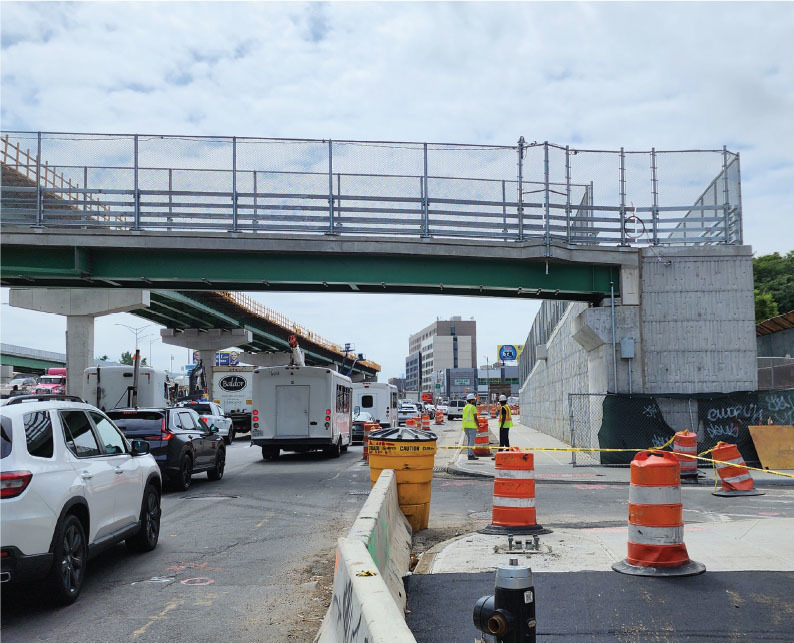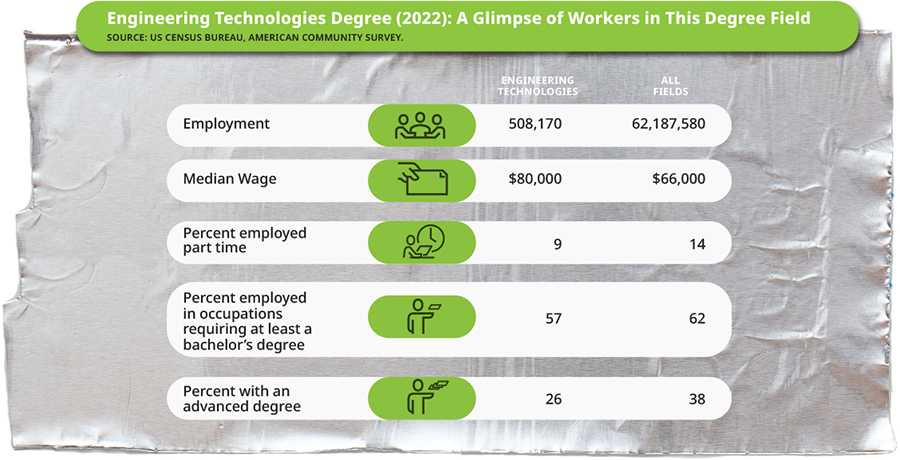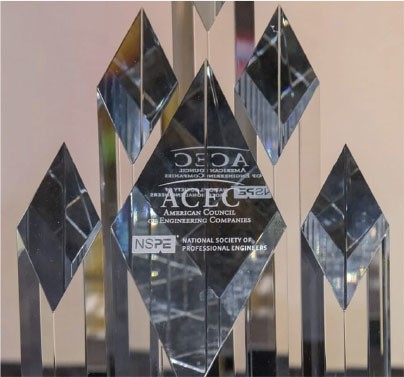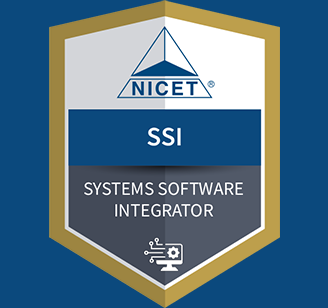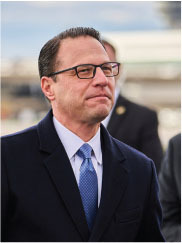March 2014
PE REPORT
NCEES Renews Exam Partnership with Japan
Three states agree to open up licensure opportunities.
If you’re an engineer in Japan, more opportunities have recently opened up to pursue US licensure.
In December, the National Council of Examiners for Engineering and Surveying renewed its examination agreement with the Japan PE/FE Examiners Council and three states—Kentucky, North Carolina, and Texas—also signed agreements to allow qualified candidates to obtain licensure in their jurisdictions.
NCEES President Patty Mamola, P.E., and NCEES Executive Director Jerry Carter met with JPEC President Masami Yoshimoto, P.E., to sign the agreement during a ceremony in Tokyo on December 18. They were joined by licensing board executive directors David Cox (Kentucky), Andrew Ritter (North Carolina), and Lance Kinney, P.E. (Texas).
The continued partnership between NCEES and JPEC is one effort to enhance mobility for professional engineers in the US and globally, Mamola said. “Making it easier to practice engineering across borders will promote the exchange of ideas and accelerate advances,” she added.
NCEES exams were first offered in Japan in 1992 through an agreement with the Oregon licensing board and through a sole agreement with NCEES beginning in 2006. This latest agreement will expand availability of the FE exam throughout the year at Pearson VUE test centers located in Osaka and Tokyo. The PE exam will remain offered in the spring and fall in Tokyo.
The Kentucky, North Carolina, and Texas licensing boards have established procedures to evaluate professional experience gained outside of the US and do not require that licensure candidates reside in these jurisdictions prior to obtaining a PE license. Licensure candidates in Japan, like domestic candidates, must comply with all state and federal requirements. “Some state requirements can make it difficult for someone from Japan to get an engineering license in the United States, such as requiring that he or she reside in that state,” Ritter said in the statement. “My state, as well as Texas and Kentucky, wanted to work with JPEC to make sure that we don’t have any unnecessary barriers.”


 Volunteering at NSPE is a great opportunity to grow your professional network and connect with other leaders in the field.
Volunteering at NSPE is a great opportunity to grow your professional network and connect with other leaders in the field. The National Society of Professional Engineers (NSPE) encourages you to explore the resources to cast your vote on election day:
The National Society of Professional Engineers (NSPE) encourages you to explore the resources to cast your vote on election day: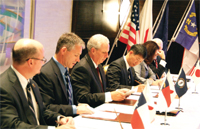 REPRESENTATIVES FROM NCEES AND THE ENGINEERING BOARDS OF TEXAS, NORTH CAROLINA, AND KENTUCKY FORMALIZED THEIR ORGANIZATION’S AGREEMENTS WITH JPEC AT THE DECEMBER 18 SIGNING CEREMONY IN TOKYO, JAPAN. LEFT TO RIGHT ARE LANCE KINNEY, P.E., OF THE TEXAS ENGINEERING BOARD; ANDREW RITTER OF THE NORTH CAROLINA BOARD; DAVID COX OF THE KENTUCKY BOARD; JPEC PRESIDENT MASAMI YOSHIMOTO, P.E..; NCEES PRESIDENT PATTY MAMOLA, P.E.; AND NCEES CEO JERRY CARTER.
REPRESENTATIVES FROM NCEES AND THE ENGINEERING BOARDS OF TEXAS, NORTH CAROLINA, AND KENTUCKY FORMALIZED THEIR ORGANIZATION’S AGREEMENTS WITH JPEC AT THE DECEMBER 18 SIGNING CEREMONY IN TOKYO, JAPAN. LEFT TO RIGHT ARE LANCE KINNEY, P.E., OF THE TEXAS ENGINEERING BOARD; ANDREW RITTER OF THE NORTH CAROLINA BOARD; DAVID COX OF THE KENTUCKY BOARD; JPEC PRESIDENT MASAMI YOSHIMOTO, P.E..; NCEES PRESIDENT PATTY MAMOLA, P.E.; AND NCEES CEO JERRY CARTER.


